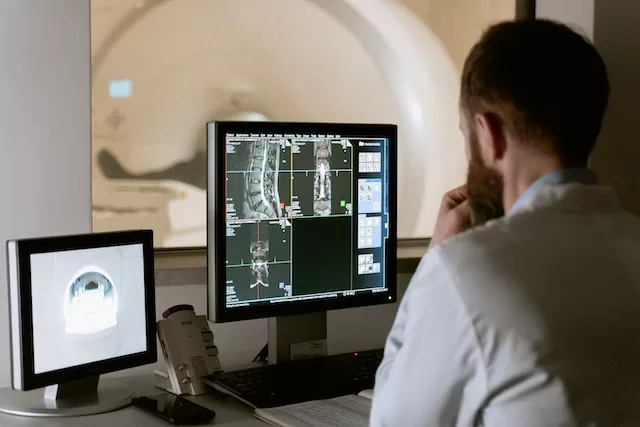


Hello, I am Dr. Ahmos Aziz Youssef, a dedicated family practitioner providing comprehensive healthcare services at our practice in River Heads, Hervey Bay. I understand the challenges that complex diagnoses can present and the importance of thorough evaluation and personalized care. Whether you are seeking guidance for a challenging medical condition or navigating a complex diagnosis, my team and I are here to offer support, expertise, and a compassionate approach.
Complex diagnoses can be intricate and often require a comprehensive approach for accurate assessment and effective management. Here’s how we can assist you in dealing with complex diagnoses:
- Specialized Evaluation: We conduct thorough and specialized evaluations, utilizing advanced diagnostic tools and techniques to better understand the intricacies of your condition.
- Collaborative Care: We work closely with a network of specialists, consultants, and healthcare professionals to ensure a collaborative approach to your diagnosis and treatment plan. This interdisciplinary collaboration allows us to provide you with comprehensive and holistic care.
- Individualized Treatment Plans: Based on the specifics of your diagnosis, we develop personalized treatment plans that are tailored to your unique needs and medical history. Our goal is to provide you with the most effective and appropriate interventions to manage your condition and improve your quality of life.
- Patient Education and Empowerment: We believe in empowering you with the knowledge and understanding you need to actively participate in your healthcare journey. We provide you with comprehensive information about your condition, available treatment options, and lifestyle modifications to help you make informed decisions about your health.
- Compassionate Support: Dealing with a complex diagnosis can be emotionally challenging. We provide a supportive and empathetic environment where you can freely discuss your concerns and receive the emotional support you need throughout your medical journey.
My team and I are committed to providing you with the highest standard of care and support as we work together to address your complex diagnosis. Please feel free to schedule an appointment at our River Heads practice to discuss your concerns and take proactive steps towards managing your health and well-being.
Warm regards,
Dr. Ahmos Aziz Youssef
People Also Ask
What does complex diagnosis mean?
A complex diagnosis refers to a medical condition that is intricate, challenging to understand, or difficult to identify due to its multifaceted nature, uncommon presentation, or a combination of multiple factors. It often involves a comprehensive evaluation, specialized testing, and collaboration between various healthcare specialists to accurately assess and treat the condition.
Complex diagnoses can encompass a wide range of medical issues that may require an in-depth understanding of various biological, physiological, and environmental factors contributing to the patient’s symptoms. These conditions often demand a thorough analysis of medical history, extensive diagnostic procedures, and sometimes multiple opinions from different medical experts to reach an accurate diagnosis.
Some factors that can contribute to the complexity of a diagnosis include rare or uncommon diseases, conditions with overlapping symptoms, chronic illnesses with varied manifestations, or cases where the underlying cause is not immediately apparent. Additionally, conditions that require the integration of various medical specialties, advanced imaging techniques, or genetic testing for proper evaluation and management are also considered complex diagnoses.
Due to the intricacy involved, managing complex diagnoses may necessitate a multidisciplinary approach, combining the expertise of different healthcare professionals to provide comprehensive care and develop an effective treatment plan tailored to the individual’s specific needs.
What is considered complex medical condition?
A complex medical condition is typically characterized by a combination of factors that contribute to the intricacy and severity of the condition, making it challenging to diagnose, manage, and treat. Several elements contribute to the classification of a medical condition as complex:
- Multifactorial Nature: Conditions influenced by multiple genetic, environmental, and lifestyle factors are often considered complex. These factors may interact in intricate ways, making the condition difficult to predict and manage.
- Rare or Uncommon Diseases: Rare diseases, which affect a small percentage of the population, often present unique challenges due to limited research, expertise, and available treatment options.
- Chronic and Progressive Illnesses: Conditions that require long-term management and often progress over time, such as autoimmune disorders, neurological conditions, or certain cancers, are generally considered complex due to their persistent nature and varying manifestations.
- Coexisting Conditions or Comorbidities: Patients dealing with multiple health issues simultaneously, known as comorbidities, often face complex medical challenges that require a comprehensive approach to treatment and management.
- Treatment Resistance: Medical conditions that do not respond well to standard treatments or require complex therapeutic regimens due to drug resistance or intolerance are classified as complex.
- Difficult Diagnosis: Conditions that are challenging to diagnose due to ambiguous symptoms, atypical presentations, or the need for specialized testing and extensive evaluation are considered complex medical conditions.
- Technological Intervention Requirement: Conditions that demand advanced or specialized interventions, such as intricate surgical procedures or complex medical devices, are also considered complex.
Managing complex medical conditions typically involves a multidisciplinary approach that integrates the expertise of various healthcare professionals, advanced diagnostic technologies, and tailored treatment plans to address the multifaceted nature of the condition and improve the patient’s quality of life.

